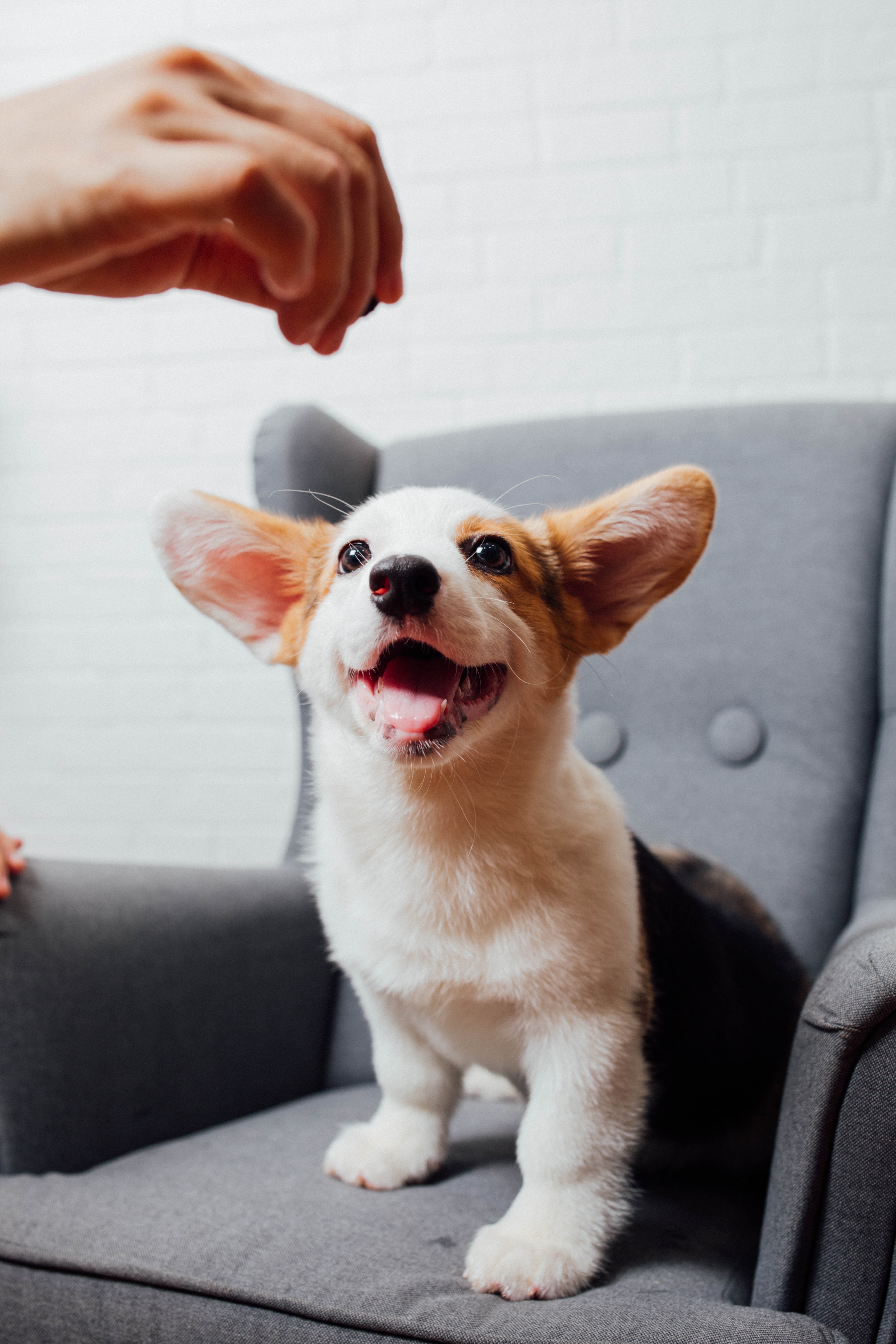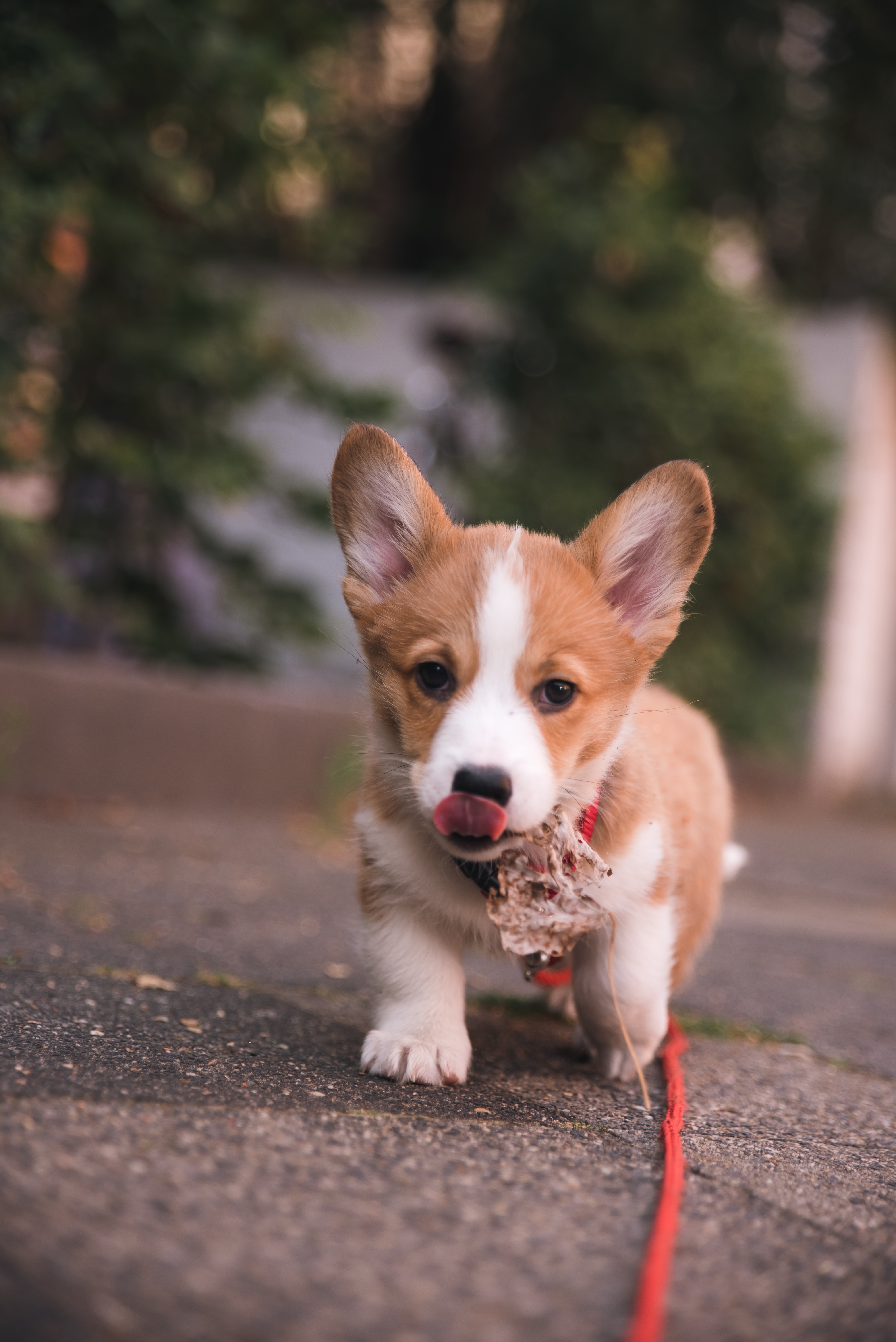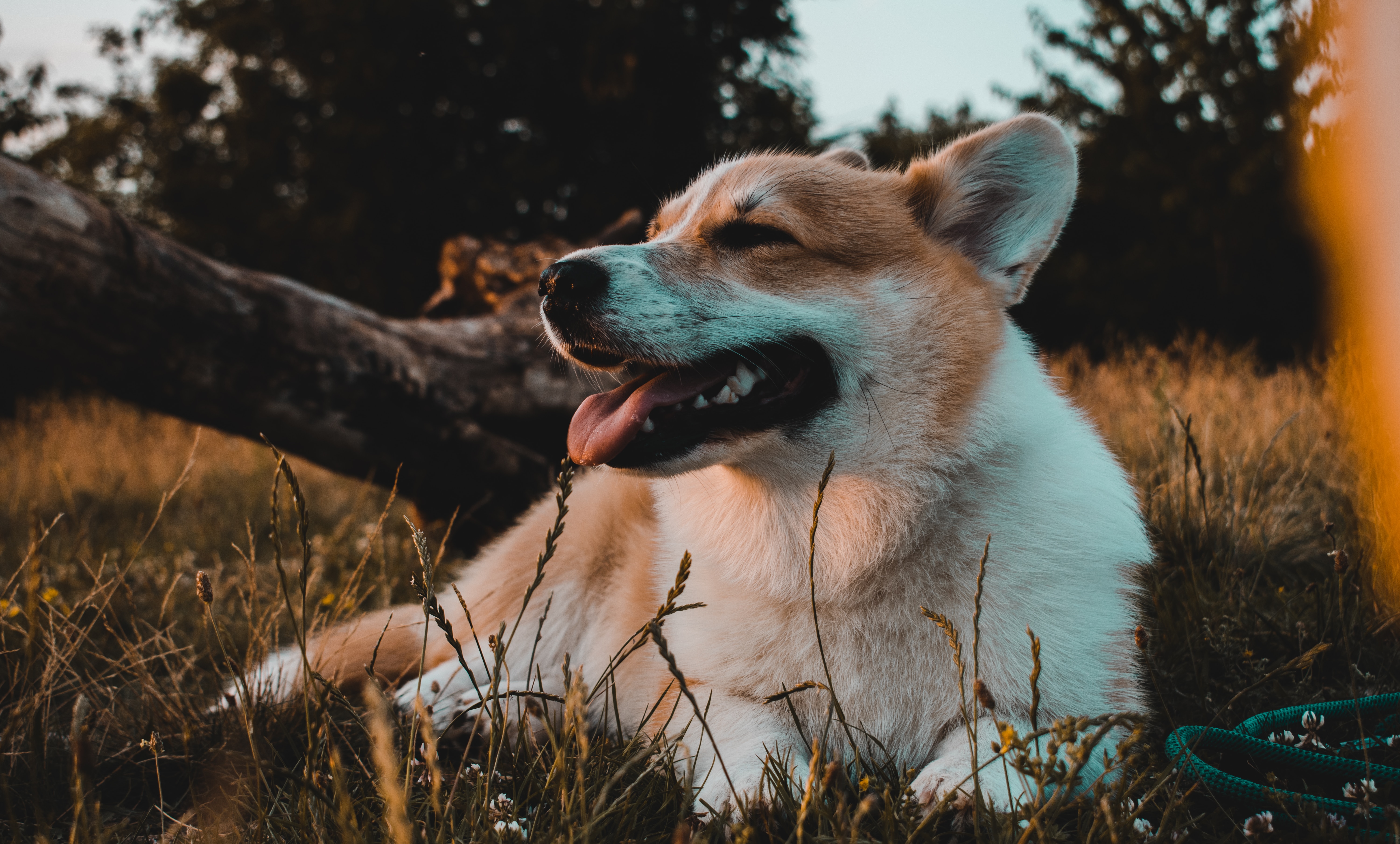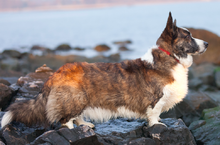
The Pembroke Welsh Corgi is a small, agile breed recognized for its short legs, long body, and distinctive erect ears. Originating from Wales, the Pembroke Corgi has a storied history as a herding dog, using its intelligence and nimble nature to manage livestock. Beyond its working roots, this breed has captivated hearts worldwide, notably that of Queen Elizabeth II, who is renowned for her fondness for them. With a cheerful demeanor, alert expression, and a tail that is typically shorter than its Cardigan cousin, the Pembroke Welsh Corgi thrives in family settings, proving to be both a loyal companion and an energetic playmate.
The Pembroke Welsh Corgi is a member of the AKC Herding Group.
Breed Characteristics
| Dog Breed | Pembroke Welsh Corgi |
| Breed Popularity (AKC) | 11 |
| Country of Origin | Wales |
| Personality | Outgoing |
| Life Expectancy | 12-13 yrs |
| Height | 10-12 in |
| Weight | 28-30 lbs |
| Color | Fawn, Black & Tan, Black & White, Red, Sable |
| Coat | Medium length, thick, weather-resist double coat |
| Shedding | Regularly |
| Grooming | Weekly Brushing |
| Health Problems | Hip dysplasia, back problems |
| Trainability | Agreeable |
| Exercise Needs | Energetic |
Pembroke Welsh Corgi History
The Pembroke Welsh Corgi has its roots in Pembrokeshire, Wales. Thought to have been brought by Flemish weavers to Wales in the 10th century or even earlier, they are an ancient breed primarily used as herding dogs. Their size made them perfect for nipping at the heels of cattle. Legends also associate them with the fairy folk, claiming they were once ridden by woodland fairies.
Temperament
Pembroke Welsh Corgis are known for their spirited and affectionate personality. While they are small, their energy level is surprisingly high. They are intelligent, making trainability smoother, but their playful and sometimes stubborn nature can pose challenges. They are friendly and generally get along with children and other pets. Early socialization helps curb any unwanted reactivity. Their barking tendencies can be on the higher side, often used to alert their families. Corgis are moderately protective but not overly aggressive. They love companionship and have limited tolerance to solitude.
Remember, while breed traits provide a general idea, individual dogs can have personalities that differ from the breed standard. Always spend time getting to know the dog and ensure their needs and temperament align with your lifestyle.
Grooming Requirements
Pembroke Welsh Corgis have a thick, water-resistant coat that sheds quite a bit. Regular brushing is essential to control the shedding and ensure the fur remains healthy. Bathing should be done as needed using a suitable dog shampoo. Regular grooming practices such as nail trimming and ear checks are also necessary for this breed.
Pembroke Welsh Corgi Health
Pembroke Welsh Corgis, living around 12-15 years, need regular vaccinations and flea prevention. Deworming is essential given their proximity to the ground. Their elongated body makes them prone to back problems, specifically intervertebral disc disease. They are also susceptible to hip dysplasia. A balanced diet is key to prevent obesity which can exacerbate these health issues.
Exercise Needs
Pembroke Welsh Corgis might be short in stature, but they have a lively spirit. Regular walks combined with playtime sessions are essential. A game of fetch or agility training tailored to their size can be an excellent way for them to expend energy. Bonding through play and trips to the dog park is beneficial for their sociable nature.
Training
Pembroke Welsh Corgis are intelligent and often display an independent streak. Obedience training, started early, helps harness their smart nature for positive outcomes. With consistent commands, potty training becomes a less daunting task. Crate training provides a haven for these small-sized herders. Quick action on behavior problems can prevent any dominant tendencies. Socialization, especially in diverse scenarios, ensures they are well-rounded and friendly.
Pembroke Welsh Corgi Pictures



Related Dog Breeds
More Dog Resources
Are you thinking about getting a puppy? Make sure to check out our list of important questions to ask before you adopt a puppy.
We also have many resources to help, from naming your puppy to socialization resources and training tips.
Take me back to the Ultimate Guide to Dog Breeds



